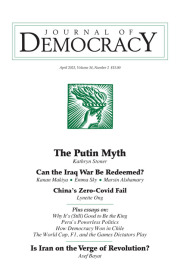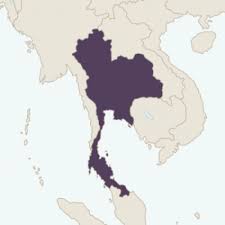The results of Sunday’s election is a clear indication that Thailand’s people want change, by throwing their support behind the Move Forward Party, which is less than five years old, Thammasat University’s Virot Ali tells CNA’s Asia First (above). The military, however, still has a key role in choosing the next prime minister, while Move Forward leader Pita Limjaroenrat may end up disqualified from politics due to his shares in a media company, something Thai law prohibits.
 Elections are supposed to be alternatives to revolution, not occasions for revolution, but this election is the equivalent of an earthquake along an enduring royalist-popular political divide, according to the University of Michigan’s Jim Slater. Thailand’s party opposition is not only strengthening, but multiplying, he writes for the Journal of Democracy:
Elections are supposed to be alternatives to revolution, not occasions for revolution, but this election is the equivalent of an earthquake along an enduring royalist-popular political divide, according to the University of Michigan’s Jim Slater. Thailand’s party opposition is not only strengthening, but multiplying, he writes for the Journal of Democracy:
For the past two decades, oppositional power has come in one color only: the red of Pheu Thai. It was the unprecedented ability of Thailand’s “reds” to win outright electoral majorities that made it such an unacceptable challenger. But now the red wave has been joined and even overtaken, at least for the moment, by Move Forward’s orange tide. Since Move Forward is more openly radical than Pheu Thai in its antimilitary and antiroyalist stances, its ascendancy might make the ruling elite even more resistant to accepting these latest election results.
Worse for the generals and the royalist establishment in cahoots with them, their attempts to suppress Thailand’s democracy are radicalizing it, The Economist adds:
The big winner was not, as predicted, the party of Thaksin Shinawatra, an exiled former prime minister, whose supporters had come first in every Thai election since 2001. It was a newer and more uncompromising liberal force. Pushing back against years of democratic retreat in Asia, Move Forward, as it is called, looks like the generals’ nemesis.
It may take weeks before a new government is declared. It may take even longer for Thais to obtain the vibrant democracy they voted for. But this election looks like a turning point https://t.co/ZnYMfCGT1m
— The Economist (@TheEconomist) May 17, 2023
“We want to see change,” said one voter shortly after casting her vote in central Bangkok, “We’ve been in stasis for too long,” The Post reports.
Move Forward ran on a platform of “the three Ds,” its charismatic, Harvard University-educated candidate for prime minister told NPR: “Demilitarize, demonopolize and decentralize — that’s how you democratize Thailand. That’s the endgame,” Limjaroenrat said. “Take military out of politics so that we don’t have military coup every seven years on average.”

Credit: NDI
Move Forward’s success in its second nationwide poll reflects a backlash against Thailand’s deeply conservative royalist-military establishment as well as the party’s popularity among urban and young voters following anti-monarchy protests in 2020, The FT adds. The party’s supporters “have grown up in a time of political polarisation marked by protests, coups, and crackdowns”, said Napon Jatusripitak, a research fellow at the Singapore-based Iseas-Yusof Ishak Institute.
In the past two decades, the Thai establishment has staged two coups while Thailand’s courts have brought down three opposition prime ministers and dissolved several opposition parties. NPR adds. Political analyst Thitinan Pongsudhirak from Bangkok’s Chulalongkorn University says the threat of dissolution looms large over this election, too.
“Something will happen, most likely, because how could the conservative royalist establishment put up with the kind of agenda that Move Forward offers and peddles, and calls for change, and reform of the military and the monarchy?” Thitinan says. “You have to imagine a lot of Thais, powerful Thais, elites, they have a lot of stakes in the system that were set up over the last seven decades … they bought into the system. And Move Forward is a direct challenge.”
Move Forward’s proposals for reforming the military and monarchy, including ending conscription and amending the harsh lèse majesté law, may also prove an obstacle in coalition talks, The FT adds. Its agenda is viewed by the establishment as “an existent threat”, said Thitinan Pongsudhirak, director of the Institute of Security and International Studies at Chulalongkorn University in Bangkok. “It’s going to be very difficult to reform the old order without some kind of a confrontation,” he said.







